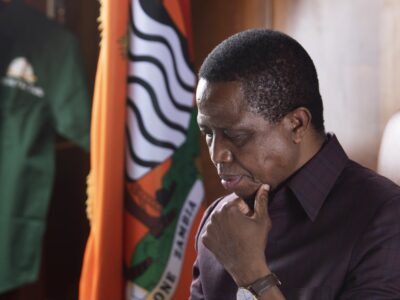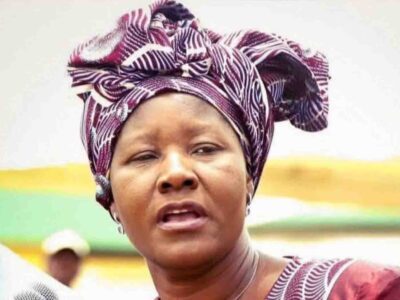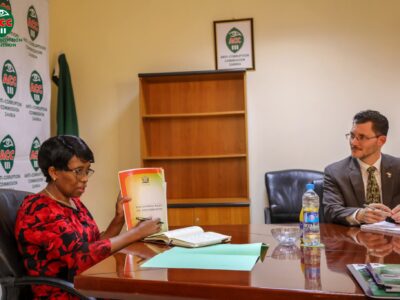The cost of money in the economy is expected to increase as liquidity will be tight in the market.
This follows the recent announcement by the Bank of Zambia (BoZ) for a 2.5 percentage point increase in reserve ratios from the current 9% to 11.5% on commercial banks’ United States Dollar and Kwacha deposits.
Read more : Bank of Zambia moves to prevent further fall in Kwacha value, as poor run persist
New Heritage Party president, Chishala Kateka in her comment said this response by the Central Bank would have dire consequences on the economy.
“Admittedly, the depreciation of the kwacha seen in the last few months has been very rapid, however, the response by the Central Bank will have very dire consequences on the economy.
“Increasing the reserve ratio will have the effect of reducing liquidity in the economy, and in the absence of other interventions, will certainly raise the cost of credit,” Kateka said in a statement issued in Lusaka on Saturday.
She regretted that the liquidity situation in the country was already tight and that this move would have the effect of further worsening the situation.
Kateka said the other effect of the added cost of capital was that this would negatively impact the productive sector.
She said these would eventually react through increasing prices of their goods and services and which would eventually lead to high inflation.
“This is clearly implementing policies that don’t cure the underlying cause to the actual problem.
The higher cost of capital will result in businesses not being able to borrow, especially the Small and Medium Sized Enterprises (SMEs).
“Again this has been the case before but now serves to put this option for business expansion even further away from most SMEs. If there is no credit extended to businesses especially SMEs, the talk about tackling youth unemployment is just idle bar talk,” Kateka said.
She pointed out that achieving stability of the exchange rate by the massaging of inflation and the propping up of that rate through open market operations by the Central Bank was not a good idea.
She stated that the appreciation of the Kwacha needed to be anchored in solid economic fundamentals due to growth in production.
Without economic growth through productivity, Kateka said, the Kwacha remained vulnerable.
“Of course the inflation will be artificially low and the exchange rate will appear to be stable in the short term. However, this action will not result in lower prices of goods and services because these will be determined by supply and demand.
“This preoccupation of controlling inflation at the expense of expanding industrial productivity will ultimately result in a weaker currency, prone to the economic vagaries of factors beyond our national control,” she said.
Kateka said Zambia should be adopting an expansionary rather than a contractionary path.
“As things stand, we can expect to see more escalation of prices of almost all essential goods and services including fuel, mealie meal, cooking oil and so on despite the inflation rate being at “single digit” she said.
WARNING! All rights reserved. This material, and other digital content on this website, may not be reproduced, published, broadcast, rewritten or redistributed in whole or in part without prior express permission from ZAMBIA MONITOR.












Comments